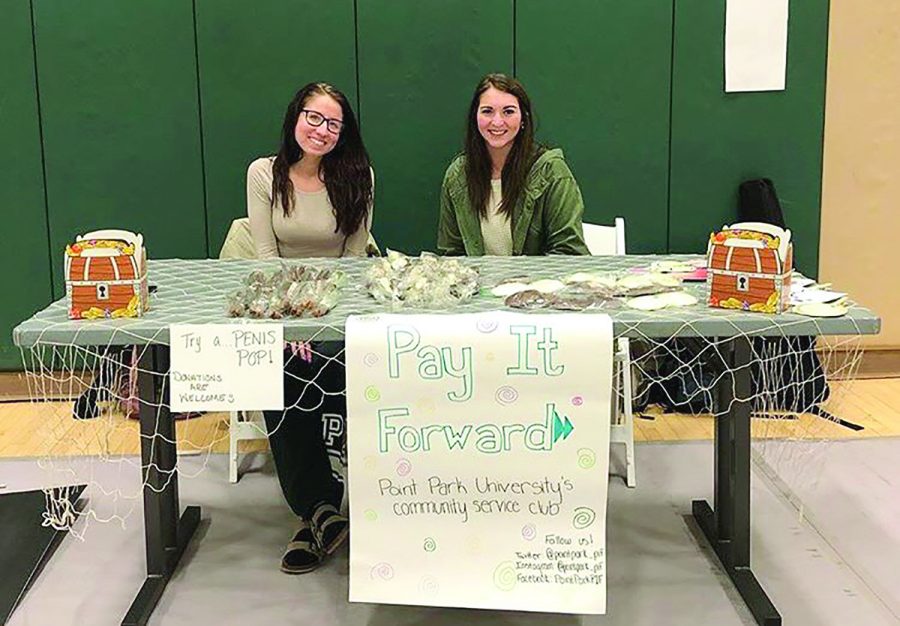Philanthropy on the rise within campus clubs
Photo by Dara Collins
Pay It Forward’s Treasurer Nicole Lakovic (left) and President Jillian Svonavec (right) run a table at the Spring 2018 Condom Carnival. Pay It Forward is one of a number of charitable campus clubs.
January 8, 2019
The number of helping hands is on the up and up at Point Park, rooted in the fact that more clubs are getting serious about philanthropy and giving back to the community
According to Rachel Phillips, assistant coordinator of student involvement at Point Park University, more and more individuals have become interested in philanthropy.
“There’s been a lull in past years, but interest has been picking up,” Phillips said.
Students have 62 different clubs and organizations to choose from, all of them founded and run by Point Park students.
These clubs and organizations are not required to run any charitable events but are left to their own discretion. One Point Park organization, the Pay it Forward Club, is one that focuses on community service and philanthropy.
“I served as the Vice President for roughly two semesters, and it was a rewarding experience,” junior journalism student Dara Collins said. “We held a a few events called ‘Bag It Forward’ where we put together hygiene bags for a local women’s shelter and lunch bags for a local homeless shelter, and we invited the student body to help us in these good deeds.”
Phillips accredits this renewed interest with incoming students having a charitable mindset when they begin their stay at Point Park.
Instead of clubs and organizations each participating in their own philanthropic interests, Phillips says that students are more likely to reach out and aid other charitable causes.
“Honor students run the Pink Feet event to benefit breast cancer research in October,” Phillips said. “Many other groups pitch in to help out.”
Margaret Davis, a senior at Point Park has been in multiple clubs and organizations during her time on campus. Davis believes that student clubs and organizations should not be required by the University to hold charitable projects.
“I think clubs and the students running them already have enough on their plate as it is.” Davis said. “I think a lot of clubs are already doing fundraisers for themselves because they’re not getting all the funding they need to operate how they would like to.”
Collins agreed Pay It Forward did not always have the resources to fulfill all the ideas the organization wished to make a reality.
“We were a small organization,” Collins said. “We had so many signatures on our sign up sheet at the organization fair, but hardly anyone showed up for the actual meetings. I think the interest is there, but the free time isn’t. On top of that, we never received too much funding money, so we would hold bake sales to boost our funds even just a little bit.”
Point Park administrators and professors encourage students to participate in philanthropy by making opportunities known to the students through social media, promotions and online newsletters such as the Social Scoop.
But Davis believes that the university’s staff could do more to encourage student philanthropy.
“I think Point Park could benefit from fostering a culture where students feel able and supported and encouraged enough to organize for the benefit of others, but only if the University itself is supporting those efforts,” Davis said. “For example, if the University matched student/fundraising efforts dollar for dollar.”
Disclaimer: Dara Collins is Editor-Elect of The Globe.



















